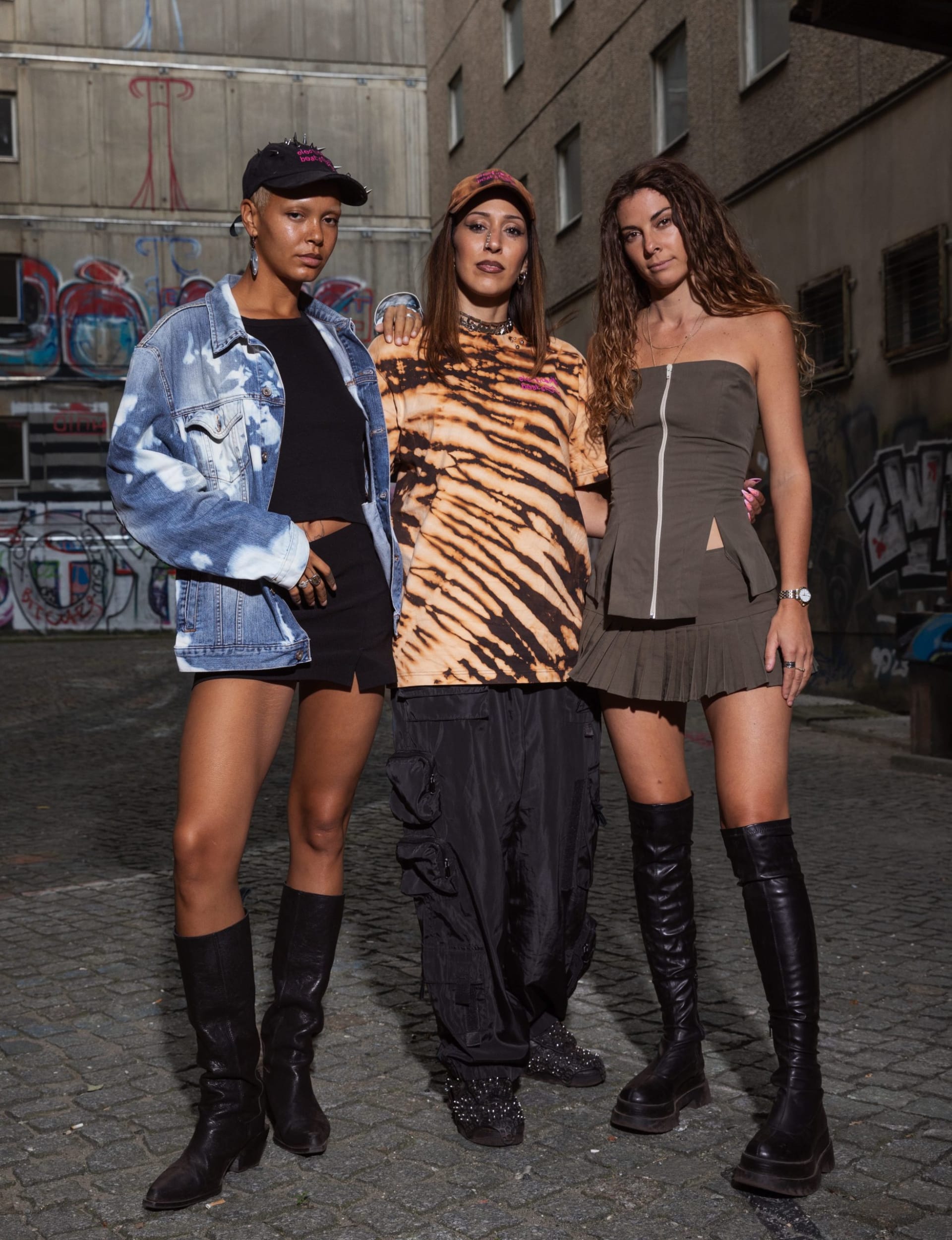
Queer power and joy
How Berlin came together to celebrate pride and queer music.
Words by Bella Spratley
Queer music is vital and inevitable, so was pride in Berlin that filled the streets and our screens on TikTok, we have the low down on the pride party Queer Beats by Platte x Telekom Electronic Beats and why joy is an act of resistance.
Queer Beats took place last week Thursday at the concept store and community space Platte, in Berlin, and we are reeling from the energy you brought, to kick off a proper pride weekend, before celebrating in the name of liberation on the streets for CSD. Queerness means freedom, and that expression was on the dancefloor at Queer Beats. Stepping out of society’s heteronormativity we saw queer women making their own sounds, mixing their own sets for queer people and allies. It was pure celebration. A far cry from the binary roles constructed for us: straight cis man and woman, maker and reflector, the sun and the moon, this party was a disorientation of archaic values that older generations fought to shake off.
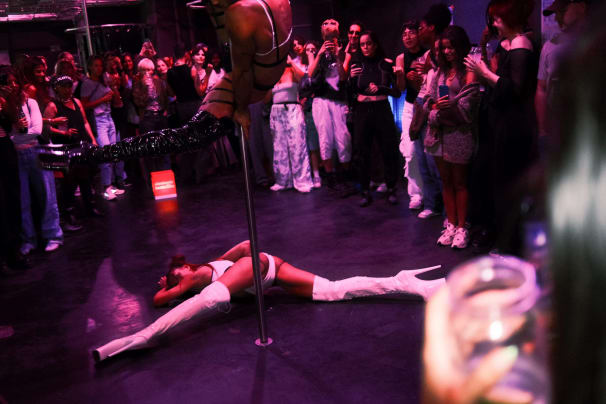
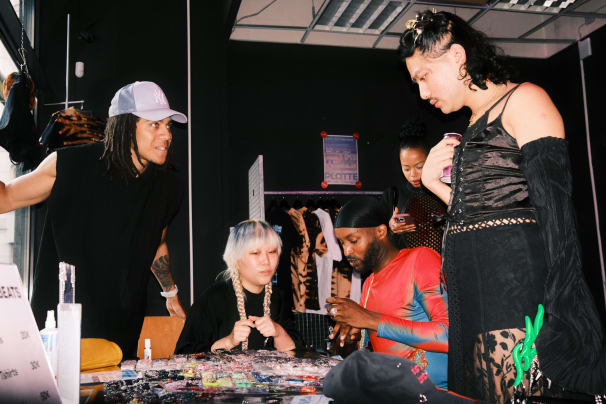
Simone de Beauvoir speaks about the man as the sun and the woman as the moon reflecting his projections and acting as a mirror to men’s cultural virility. Meg10, Arra and BEC who DJed at the event are queens of the night, projecting their own creative lights. These women do things on their own agendas, independently. Neither sun nor moon, they are disco lights.
Arra, who kicked off the night with a bit of a darker edge sound, advocates: “The past, present and future of electronic music is black and queer, watch out!” Also her website shows some admiration for bell hooks who wrote all about love and famously took down the male gaze and white feminism, creating the oppositional gaze in her cinematic theory essay black looks: race and representation.
Meg10, the founder of Hoe__mies that co-organised the event spun hip-hop and dancehall to tropical sounds in a genre-spanning performance that got heads nodding and pulses racing. Hoe__mies was created to make space – space for everyone: “There are already a lot of spaces in which mainly white and/or straight cis-male DJs play. The space Hoe__mies created, is meant to place their focus differently, and put other great DJs in the center of our line ups.”
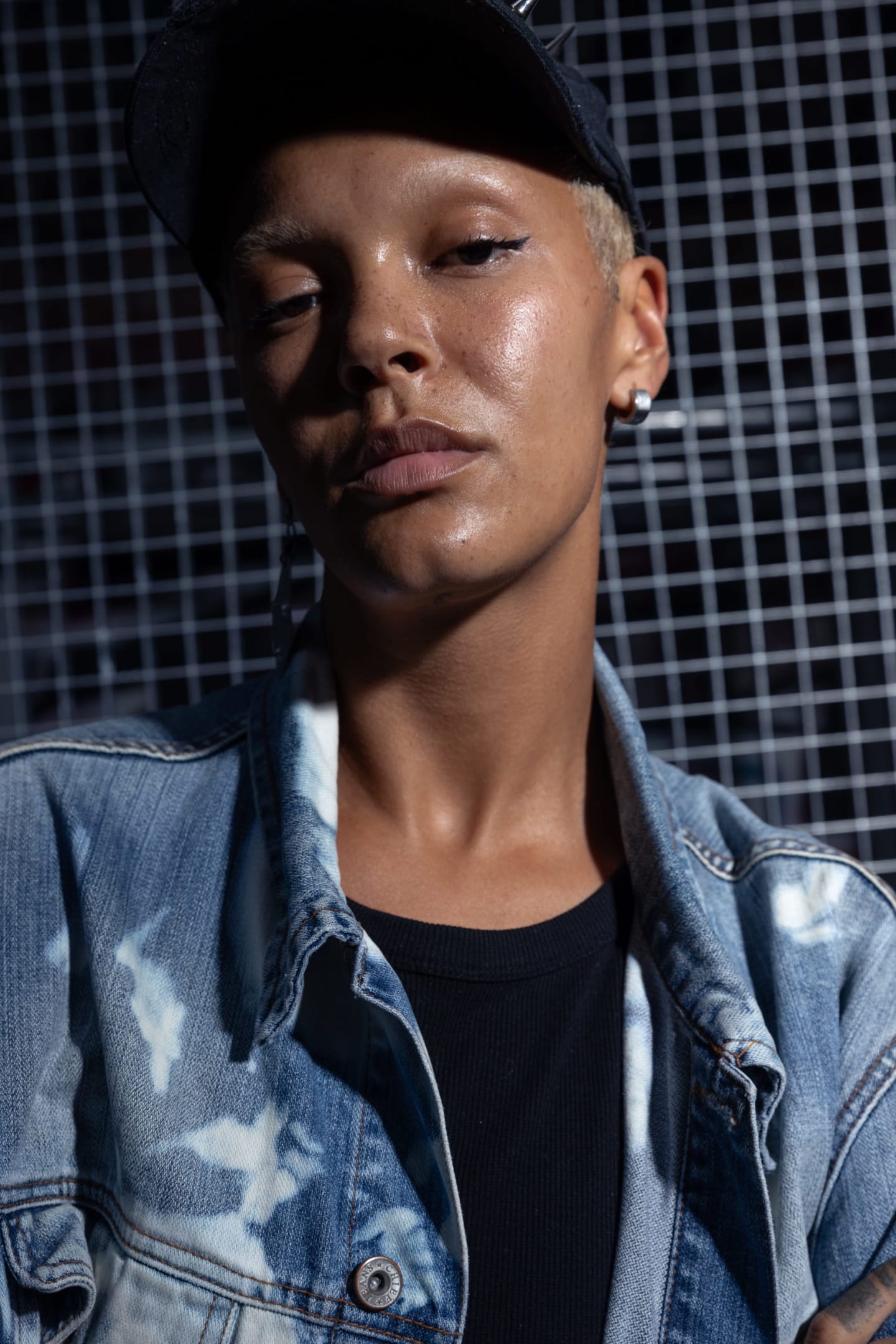
Keeping up that high BPM and high energy was BEC. On queerness in music she shares, “When I first got established in the techno scene, I could count the amount of well-known female & openly queer DJ’s on my hands. It was an extremely dominated cis, white & male industry. In the past few years, I’m so happy to see a lot of talented female, queer and POC producers being integral parts of the scene, world wide. We still have a long way to go but let’s also take a moment to appreciate the steps we’ve already come and take it from here!”
And what better way to support the queer community than collaborating with Hoe_mies as co- organisers of the night. Hoe_mies is a queer feminist initiative focused on women and non-binary people’s safety and sexual freedom. This vital premise is also shared by Barcelona’s Maricas and Vienna’s WET, proving this is an international concern.
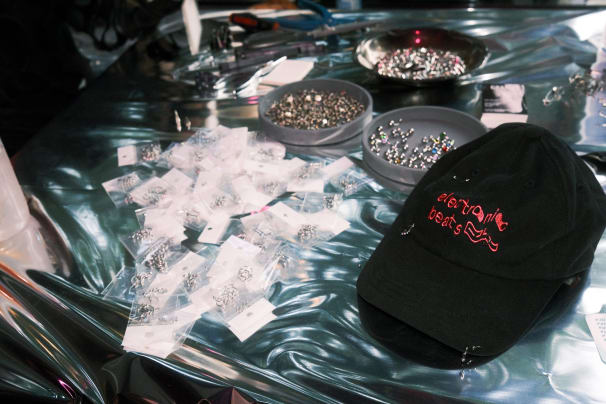
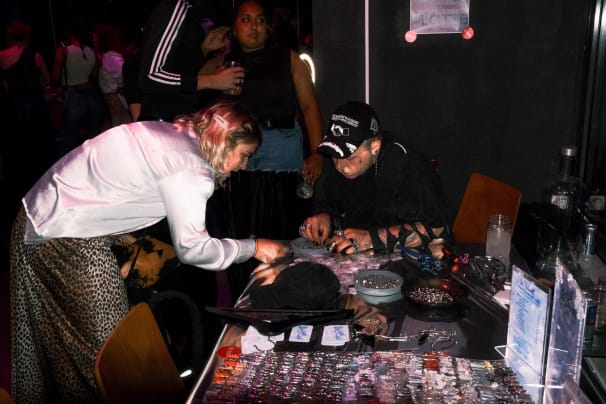
On a local level, attendees of Queer Beats partied at venue Platte that supports the queer agenda with gender-bending clothing at its concept store. The physical act of meeting and moving together is reflective of electronic music as protest music. The crowd was made in its majority up of queer people of Colour, like the true innovators of the genres playing: house, disco, funky, techno and cosmic. Without becoming too nostalgic, this was a moment for the community. Dancing together, finding joy.
It was also an extension of the celebrations for pride whose parade on Saturday saw hundreds of thousands of Berliners march to protest hate crimes against LGBTQ+ people and advocate for better access to healthcare for our trans siblings. Pride in Berlin is known locally as Christopher Street Day or CSD named after the street where the stonewall riots happened in NYC according to TikTok channel dw_berlinfresh. Berlin’s pride has its feet firmly on the ground and roots itself in the origins of pride: protest. Huge crowds filled the metro and it was a really sweaty experience according to viral berlin also on TikTok, but Berliners persevered. The street was filled with floats each with a different vibe, along with Ukraine’s own section, the pride march presented the diversity of queer experience along with the importance of standing up for queer liberation on a local and international level.

Music is resistance, joy is resistance. In this society that sometimes feels formed to grind us queer women, enbies, gays and trans community down happiness really is an act of power against the system. Lynée Denise, the artist and scholar, writes “ballroom culture surrounding house music provided a sanctuary for people who were kicked out of their homes, shamed into silence, and at times shunned by churches, mosques, and cathedrals” discussing the 70s Black queer roots of house for Harper”s Bazaar. She traces this history back to originators Robert Williams and Broxn-born Frankie Knuckles, who started a club called the Warehouse in Chicago for predominantly Black gay men in the 70s, proving the first house club was Black and queer. Denise also highlights not often remembered Black women who contributed to the culture at the inception of the house genre: Stacey “Hotwax” Haley, DJ Sharon White and vocalist and DJ Ultra Naté. At the parties thrown at places like the Warehouse during the AIDS crisis, house music was a place for people to come together to mourn and dance away the pain – whether they were straight or gay. Today at queer parties, we mourn the violence against LGBTQ+ people across the world and celebrate the resilience of the community.
As well as the DJ sets at Queer Beats that sonically conceptualised queer freedom, there was garment customization by Max Teutsch, which brought a punk spirit to the event. Also we experienced pole dancing performances by Robyn and Lucia, which was a cheeky treat for the eyes. It felt like a coming together of creative queers for community healing through joy. For your body, there were hand poke tattoos by E Naitz and nail art by Bbysclaw. To quench your thirst Abolsut Vodka supplied the free drinks. Taking care of the whole of our bodies and souls, every aspect of the party contributed to a full feeling of LGBTQ+ love. Growing from the queer history of dance music, this contemporary gathering created a uniquely feminine space for all queers. It calls back to the historic Mali und Igel lesbian bar of the 1920s in Berlin set up by two lesbian women that sadly closed during Nazi rule. It was a Jewish-owned intellectual meeting place that welcomed the likes of Marlene Dietrich. At Queer Beats we let our bodies do the thinking though. Dancing to techno, house, disco, funky and cosmic is not necessarily an intellectual pursuit, but there exists a lot of writing about it.
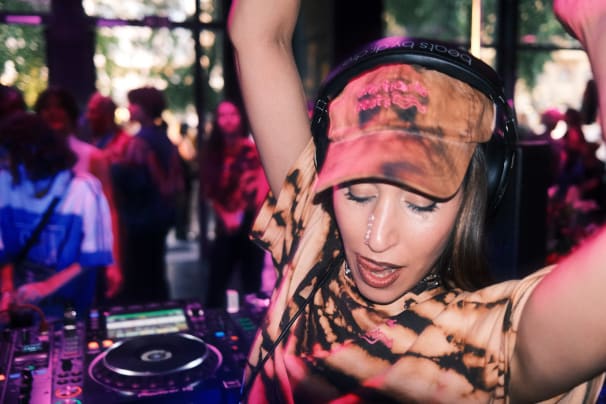
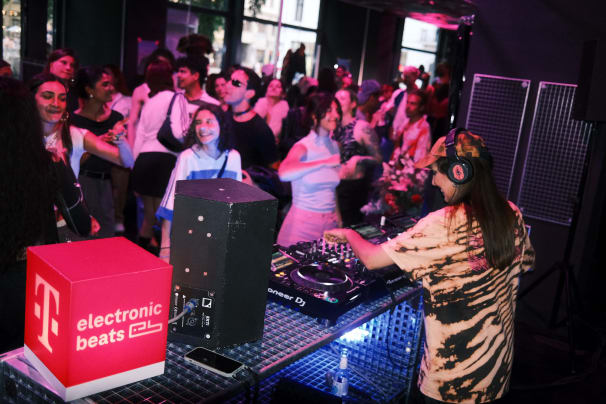
In an essay called Fabulous: Sylvester James, Black Queer Afrofuturism and the Black Fantastic by Reynaldo Anderson the writer highlights the political influence on the fading popularity of disco in the 80s after its boom in the 70s. !The popularity of disco began to wane during the advent of the Reagan and Thatcher administrations of the 1980s. The rise of the New Right, in reaction to the liberation movements of the 1960s and early 1970s, sought to reassert patriarchal norms of white heterosexual cultural “values”, opposing the too black, too gay, too female culture of disco”. Today, when we hear what might be deemed trashy music spun on the decks, including disco classics, we know it”s a reappropriation of that sound. The Right cannot cancel great music. Taste itself is evidently politicised. Disco, the predecessor of house and techno music, was hugely influenced by the androgynous man Sylvester James. A black gay man who gave us iconic tracks such as !You Make Me Feel (Mighty Real)”. It makes us go far as to so say all disco is queer by default – its flamboyance and groove providing the thrill and fearlessness we require in the community. Never too gay.
Queer music is eventually any music played by a queer DJ – which makes things easy when talking about it. It’s the act of curation with humour, irony or sincerity that brings out the significance of a track. Each choice acting in conversation with one another. House, disco, funky, techno and cosmic are interrelated with their shared origins in Black queer music, created in the underground by social misfits. Queer Beats at Platte x Electronic Beats provided a meeting place for Berlin’s creative misfits and a moment of resistance and joy. Without the queers there wouldn’t be the disco and house we know today. These pivotal cultural creators like Sylvester James, Robert Williams and Frankie Knuckles deserve to be continually recognised and remembered. We stand up for great music and LGBTQ+ people.
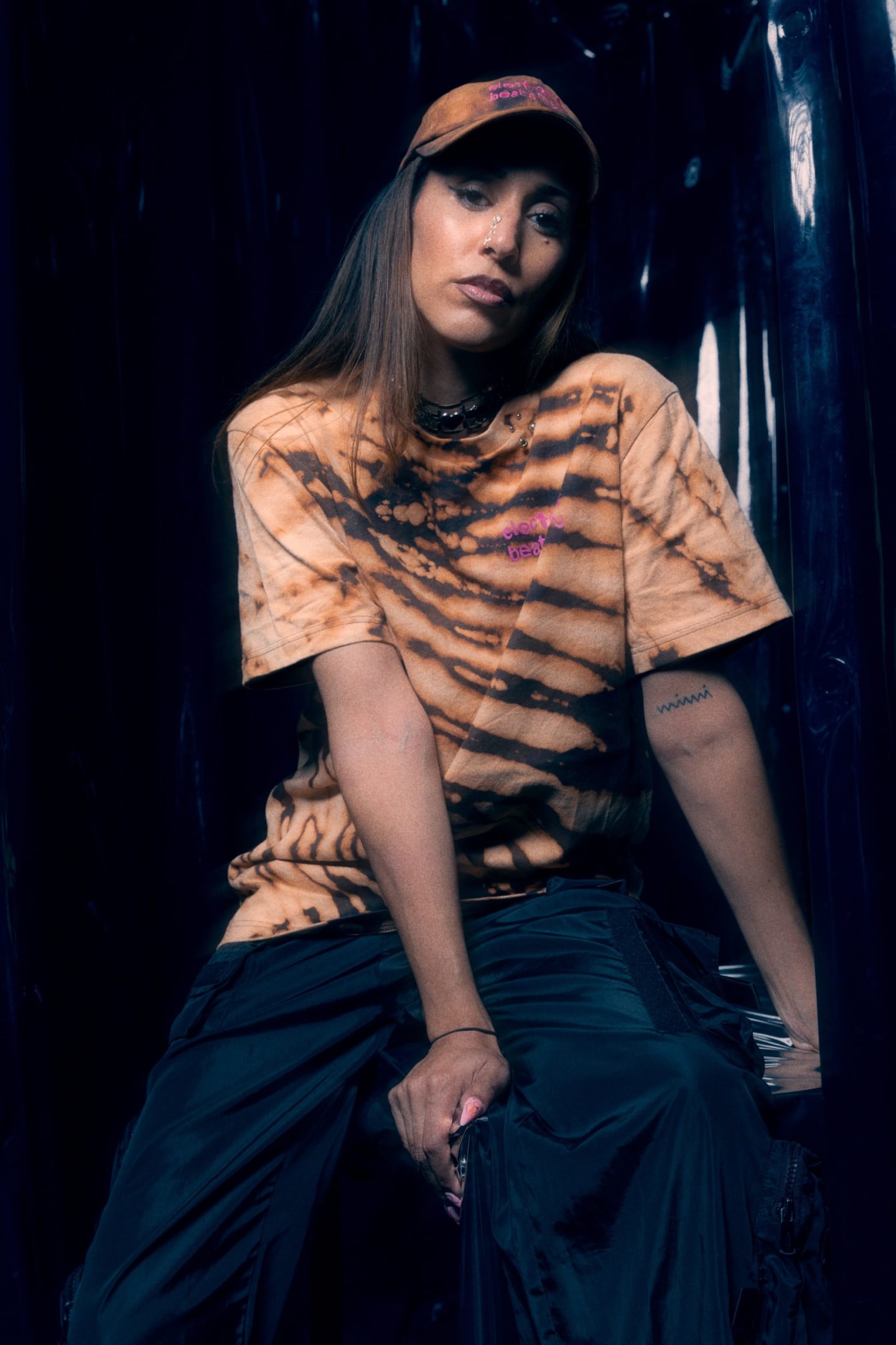
Credits
Images: Mitch Noakes and Justin Bach
Published August 07, 2023.

Follow @electronicbeats